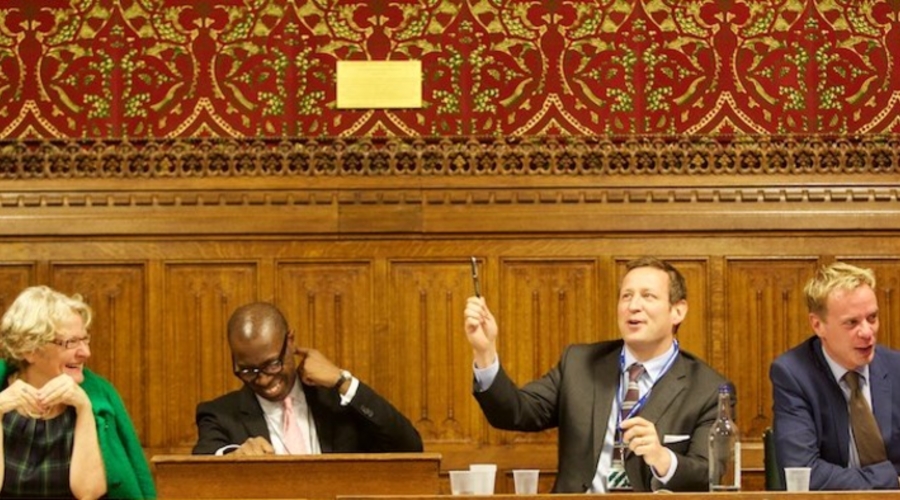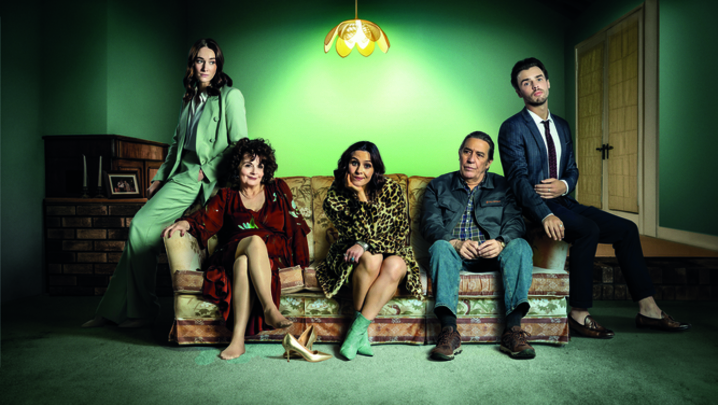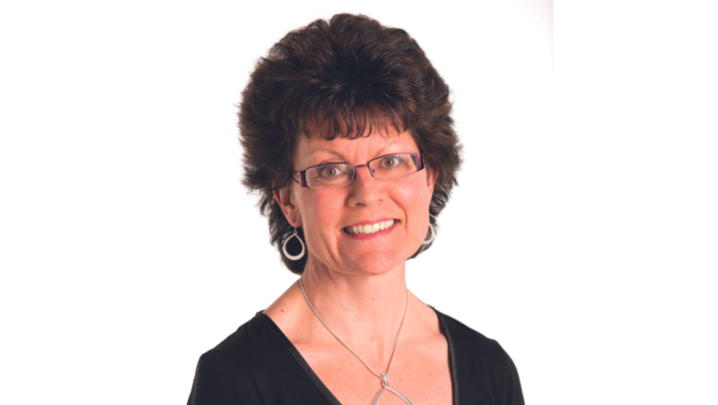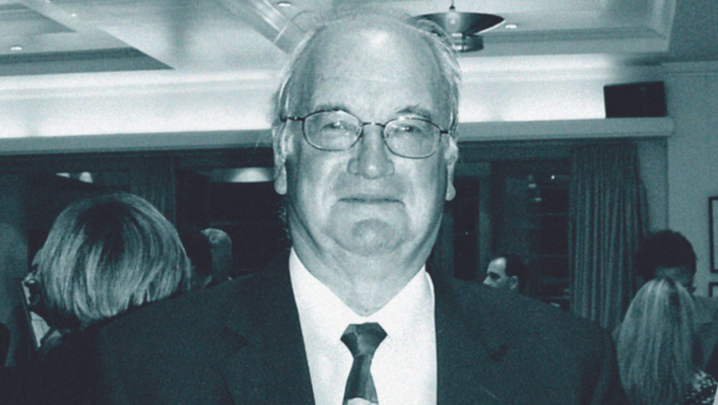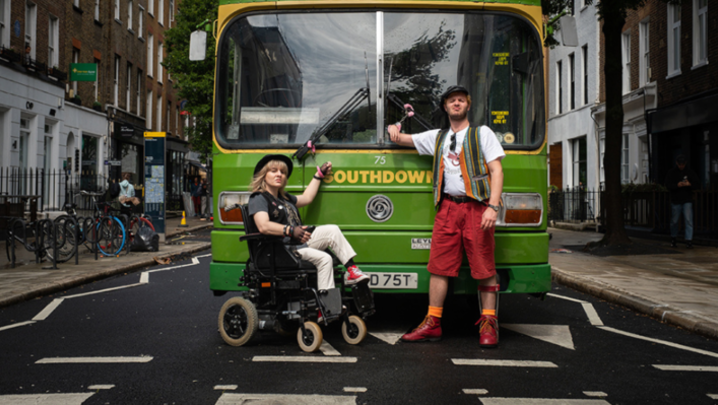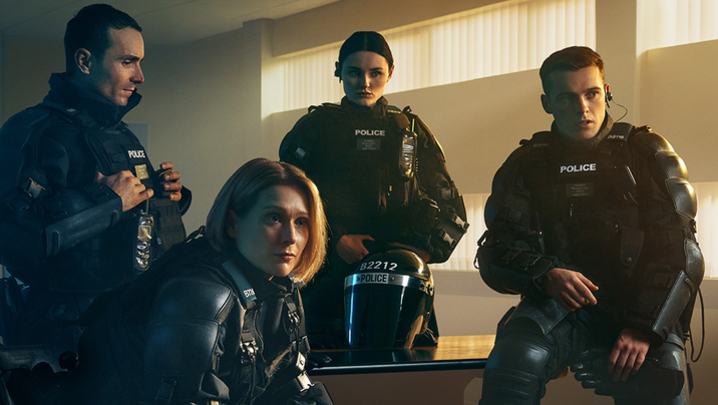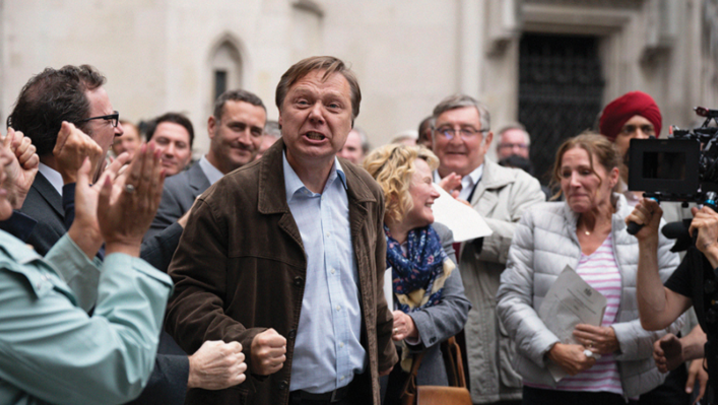TV has been ‘hideously white’ for too long. Steve Clarke attends an RTS debate that signals progress is finally under way
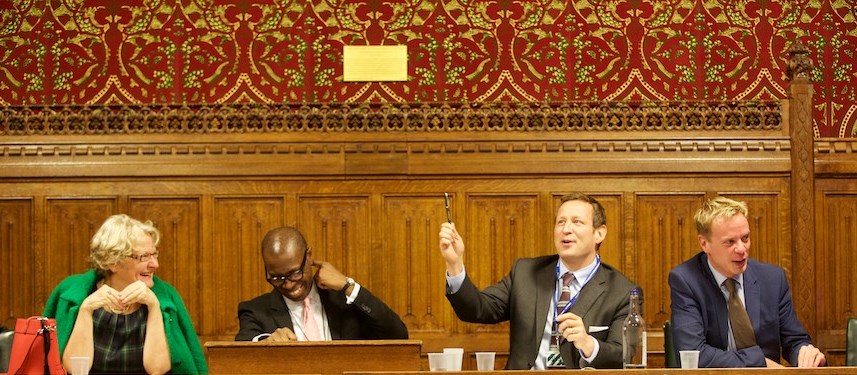
On the face of it, a privately educated, Oxford graduate Tory grandee and a black TV comic who left school at 16 have nothing in common. But the unlikely pairing of Ed Vaizey MP and actor Lenny Henry finally appears to be delivering a real change in approach to diversity within broadcasting.
For decades, television has struggled to transform its "hideously white" workforce and to embrace modern, diverse Britain on both sides of the camera.
There is now a decent chance of that happening, as the audience at an electrifying RTS debate, "TV diversity: who will win your vote?", heard.
The discussion at the House of Commons confounded those sceptics who believe that TV will for ever be stuck in its white, male, middle-class mindset.
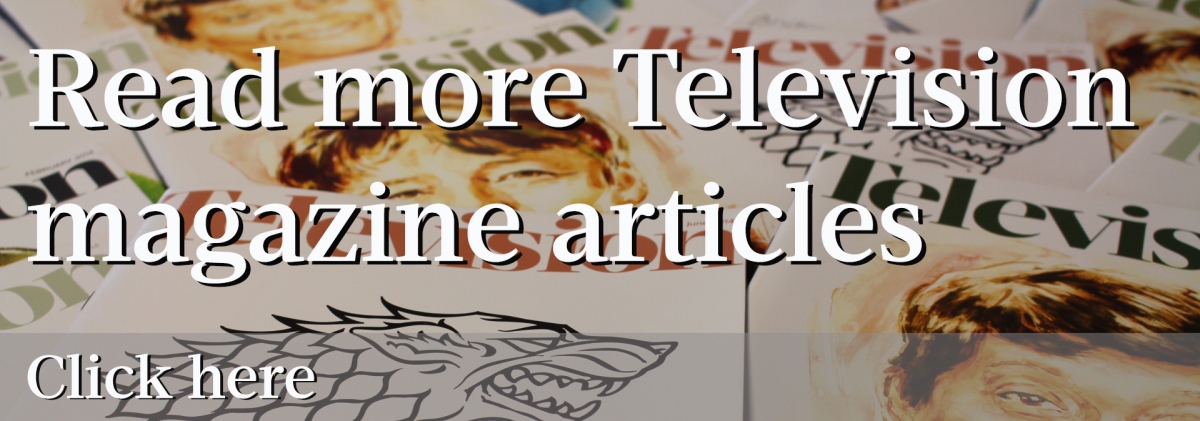 Vaizey, the Minister for Culture, Communications and the Creative Industries, was joined on the panel by his Labour shadow, Helen Goodman MP, and Liberal Democrat MP Stephen Gilbert.
Vaizey, the Minister for Culture, Communications and the Creative Industries, was joined on the panel by his Labour shadow, Helen Goodman MP, and Liberal Democrat MP Stephen Gilbert.
Yet the omens weren't encouraging as the pin-sharp chair, BBC News Channel Senior Presenter Clive Myrie, set the scene. He noted how BAME (black and minority ethnic) levels of employment across UK TV had worsened in recent years. His own experience as a black BBC foreign correspondent spoke volumes about the decline in jobs for non-whites.
"When I joined the BBC in 1992, there were two other Afro-Caribbean reporters, now there is only me," he said.
While the legal profession has embraced diversity, the TV industry has been going backwards, Myrie reminded the audience.
No minister has done more on this issue than Ed Vaizey. He has set a benchmark by which future ministers should be measured
According to Creative Skillset, BAME representation across the creative industries fell from 6.7% in 2009 to 5.4% in 2012, despite 12.5% of the UK population being non-white.
"What's going on? Is it pure and simple racism?" Myrie asked. "Why are bosses only employing people in their own image – white, male, middle-class? Are minorities being put off because they won't feel welcome?
"Are quotas the way forward? Should money be ring-fenced for BAME production [the Lenny Henry plan]?"
Under the terms of its Royal Charter, the BBC is obliged "to represent the UK, its nations, regions and communities", the BBC journalist pointed out.
Charter renewal, due in 2016, represented "a golden opportunity for the BBC to lead the industry and actually fulfil one of its core duties," said Myrie. Few in the room disagreed.
The three MPs were then given five minutes to talk about diversity.
Goodman and Gilbert highlighted how unpaid internships favoured the white, middle class.
The Labour MP attacked the former media minister Jeremy Hunt for ending Ofcom's brief to monitor diversity levels in employment at UK broadcasters.
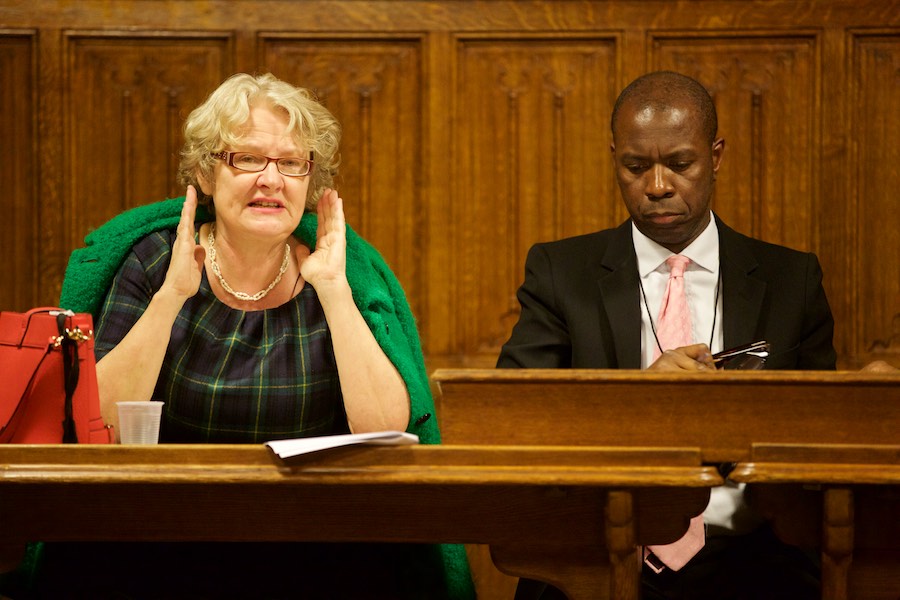
She said TV was possibly "the most important cultural force" in the UK. It was therefore vital that TV reflected the diversity of modern Britain on screen and in its employment practices.
With more SMEs and independent producers, concentrating on the human resources policies of big broadcasters was no longer enough.
Goodman praised the recent BFI initiative designed to address diversity in all films supported by the BFI Film Fund. In order to be eligible for funding, projects must demonstrate a commitment to diversity.
Gilbert drew attention to his own experience as a gay man raised in a working-class family in Cornwall.
"If you turn on the TV, I don't exist," he said. "I'm a gay man who happens to wear a suit, not something you see particularly in the programmes shown by our major broadcasters."
He added: "We don't see enough black, minority ethnic, disabled people or women on TV... TV does not reflect the nation it is serving and the people who are watching."
But all eyes were on Vaizey, the minister who, in January, had hosted a diversity roundtable featuring Lenny Henry, among others.
"Our first roundtable was a great education for me and a lot of scales fell from my eyes," admitted the politician.
His own Damascene moment came at the National Theatre, when he saw Henry defy the sceptics by giving a powerful performance as Antipholus of Syracuse in Shakespeare's The Comedy of Errors.
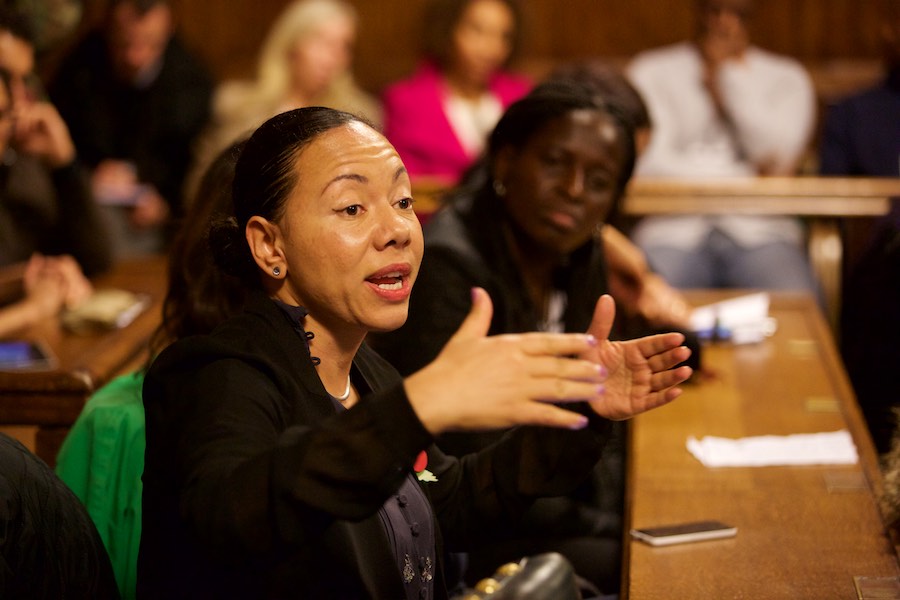
"I noticed a fairly obvious thing. The audience was completely different when Lenny Henry was on stage... I've never been a great fan of slightly abstract notions of outreach and statistics," said Vaizey. "If you get so many kids through the door, you must be doing something right. What we need are more ethnic-minority people on stage."
One thing led to another. When Henry made headlines in May 2013 for criticising the Bafta Awards because of the black talent deficit, Vaizey sat up and took notice.
"The BAME community feels it has talked about this issue for 30 years," said the minister. "Nothing's changed. If anything, it's got worse. It is a truly shocking position to be in.
"The reason it matters, and the reason that broadcast matters, is because it is the record of our lives.
"When our children and grandchildren look back on what Britain was like in the 2010s, they may well see an exclusively white Britain and that is not the case.
"That is why intervention by broadcasters, giving people a leg up, is very important."
Progress, however, had been made, he said. Under the chairmanship of ITV CEO Adam Crozier, the Creative Diversity Network had been transformed into a free-standing body with its own executive.
And it would soon introduce monitoring software. This would allow meaningful comparisons to be made in relation to the number of BAME people working at broadcasters.
"I hope the statistics will be shocking and continue to shock people out of their complacency," warned Vaizey.
Why are bosses only employing people in their own image – white, male, middle-class?
He said the BBC, ITV and Sky had all recently published new diversity initiatives: "Sky has set very ambitious targets, partly driven by Sophie Turner Laing [BSkyB's former content chief] and now taken up by Stuart Murphy [Sky's Director of Entertainment Channels]."
ITV's proposals were "slightly more opaque", while "some regard the BBC's as very unambitious" because they are spread over a number of years. He awaited Channel 4's plans with "eager anticipation".
Vaizey said that he would not commit himself to Henry's plans for ring-fenced money to back BAME content, and ruled out legislation on the issue.
"For me, this is very much an active, watching brief. If necessary, government will have to push harder than I have in the past 12 months.
"The proof will be in next 12 months, if there are improvements."
Myrie asked why had it taken Vaizey so long to address the lack of TV diversity. "You can criticise me for it," conceded Vaizey. "Floella [Benjamin] has talked about this issue for years, but there actually comes a seminal moment when you realise the cause and effect.
"That came when I saw Lenny in The Comedy of Errors. That's when I decided to take it up as a cause."
He then posed a question: "Should government be imposing this from above or should it come from the broadcasters? I think we have made progress because we have worked in partnership... We've shown the broadcasters that we are serious about seeing change...
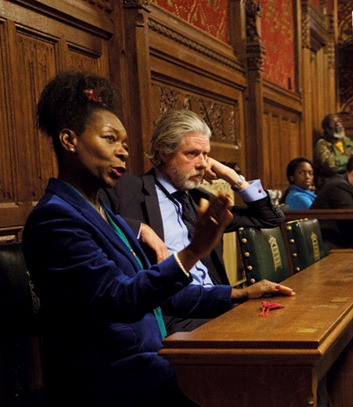
"I am pleased with what's happened in the past 12 months. There's been a real step change. I am not going to claim credit for it. Floella, Oona [King] and Lenny Henry have all been very helpful. There's been a meeting of minds."
Speaking from the floor, veteran diversity campaigner and ex-RTS CEO Simon Albury praised Vaizey's intervention.
He said: "I've been observing civil rights and diversity issues for 50 years and no minister has done more on this issue than Ed Vaizey.
"He has set a benchmark by which future ministers should be measured.
"Chris Smith tried to do it 15 years ago, but he underestimated the... broadcasters' [resistance to] change and their ability to procrastinate."
Despite the progress of the past year, Albury was alarmed by recent remarks by the BBC and ITV, which have both said the Equality Act (see sidebar, right) presented them with difficulties.
If the Act does prevent the broadcasters giving equal opportunity and better representation to BAME communities, would Parliament consider amending it, asked Albury.
"I haven't seen the Equality Act cited to me by anyone saying they can't deliver any of these initiatives," replied the minster.
The reason that broadcast matters is because it is the record of our lives
"I have made it very clear that Sky is far and away the most impressive with its can-do, get-on-with-it attitude...
"What I really do want to get across is... I don't want to be here in 12 months' time with people saying that nothing has changed. If that is the case, politicians will have to do some really serious thinking about what they can do to make change... It's an appalling situation."
But it does seem as if TV's dismal record on diversity is set to change. As Baroness Benjamin, who has worked as a presenter, producer and TV regulator, said at the end of the debate, to loud applause: "I've been dealing with this issue since 1973. I've seen it from all different perspectives.
"This is the most exciting time we've had dealing with the issue. Without Ed pushing the way he's pushed... Real positive changes have been made, which I think will be lasting changes...
"People now get it, they understand what needs to be done and realise there is no going back.
"Young people are now saying, 'We want something that's different'... The people who used to be in charge are no longer there.
"Things are changing and people like me are not going to give up, because we can smell victory."
Let's hope this optimism is not misplaced and that, before too long, television can begin to be proud of its record on diversity.
The RTS All Party Parliamentary Group event 'TV diversity: who will win your vote?' was held at the House of Commons on 17 November. It was produced by Marcus Ryder, Editor of Current Affairs, BBC Scotland.
TV's tendency to stereotype
Afua Hirsch, Sky News: 'There's a lot of talk about numbers, but what about the quality of the roles? Black presenters often present late at night or very early in the morning.
'There are also stereotypical expectations about what non-white presenters should do. You rarely hear a black person talking about politics, law or foreign affairs.'
Clive Myrie, BBC News: 'When I joined the BBC, I refused to go to Brixton to cover riots. My first posting as a foreign correspondent was to Japan. They got the message.
'I would like to think that when the public see me on screen they don't see a black journalist but a journalist who happens to be black.'
Channel 4 on diversity
Dan Brooke, Director of Marketing and Communications, said: 'We are very proud of the fact that Channel 4 has championed minorities since it began. Today, you see it across things such as the Paralympics...
'I know it has an impact because, when you ask viewers which of all the TV channels champions diversity, Channel 4 gets a score that is three times higher than the next-best broadcaster...
'We haven't published targets yet. There is a good reason for that, which is that we start from a position that is ahead of other broadcasters and we are extremely keen to get it right across all aspects of diversity and across all genres...
'It's not just a set of tick-box exercises, but something that will create genuine, lasting change across the industry.'
The Equality Act: the legal view
By Graham Green
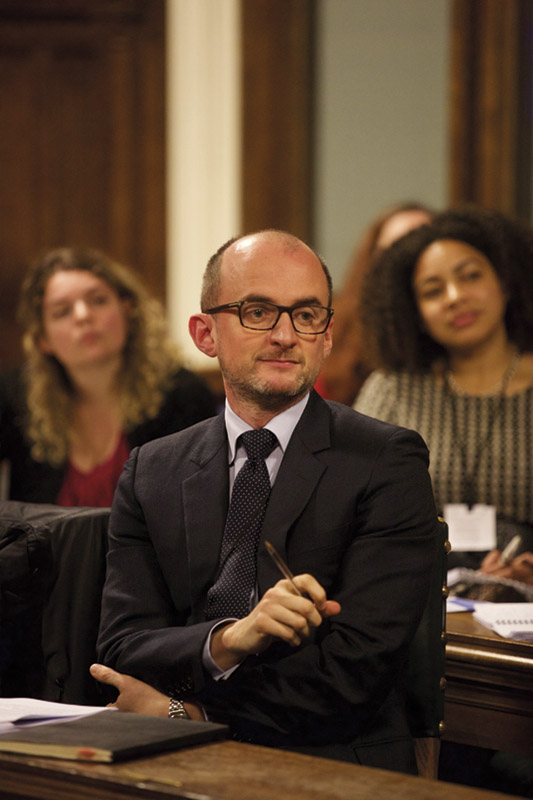
Among the broadcasters and production companies for whom I act, there is a very real commitment to improving representation of under-represented groups – that includes, for example, increasing BAME representation, on-screen and off-screen, increasing representation of people with disabilities and increasing the representation of women in areas of broadcasting where they are currently under-represented.
Actions taken to ensure that on-screen and off-screen talent reflects the UK population as a whole are hugely important and must be compliant with the Equality Act.
The Act prohibits discrimination, including 'positive discrimination' and use of quotas in selecting talent is not without significant risk. Consequently, it is very important to understand whether initiatives being considered by broadcasters can be implemented lawfully.
Broadcasters have been working for some time to improve monitoring of the protected characteristics of on-screen and off-screen talent. New monitoring currently being introduced will enable broadcasters to consider the effectiveness of these commitments over time.
I was asked at the APPG event how the speakers could actively assist the industry. I provided some examples of how the politicians might act:
n Producing clear guidance on what broadcasters and producers can do. The Equality Act 2010 Employment Statutory Code of Practice has examples of lawful action but they are not specific to the media industry. One approach would be for broadcasters to work with the Government to produce clear industry-specific guidance that wouldn't require legislative change.
n If there is a call for it, and I don't think that there is at the moment, legislative change could be considered in a similar way as to the exemptions allowing UK political parties to use all-women shortlists to select candidates for various parliamentary and local government elections.
It is unclear whether there is an appetite for this, but it is important to understand that some of the initiatives being called for by the politicians would require changes like these.
The current situation is summarised by the Equality and Human Rights Commission in relation to all-women shortlists for board membership: 'We do not believe that it is lawful to address under-representation by longlisting or shortlisting only female candidates to the detriment of male candidates'.
n Something similar to the Rooney Rule could be considered. Dan Rooney introduced a system in the US which requires National Football League teams to interview minority candidates for head coaching and senior football operations jobs.
Although the Rooney Rule does not impose a quota or require a preference to be given to candidates from ethnic minorities at the point of selection, it risks unlawful positive discrimination in that, as mentioned above, an employer 'must not discriminate against a person in the arrangements it makes for deciding to whom to offer employment'.
This means politicians may need to be open to potential tweaks to the legislation, or at least (and perhaps more realistically) specific guidance, to enable broadcasters to confidently adopt such a rule without exposing themselves to risk.
Graham Green is an Employment Partner at Reed Smith in London and heads a global employment group focusing on the media, entertainment and technology sector.
Diversity in the next Charter
Ed Vaizey MP: 'The negotiations over Charter renewal will start after the May election and I have no doubt at all that diversity will be part of those discussions.'
Stephen Gilbert MP: 'You're asking me if I think the BBC is getting it right. No, I don't. There should be more money, it should be better targeted and the issue needs to be properly defined in the Charter.'
Helen Goodman MP: 'Charter renewal is an opportunity... I think I'll be satisfied that we are where we want to be when we have a member of the traveller community as a commissioning editor at Channel 4.'

